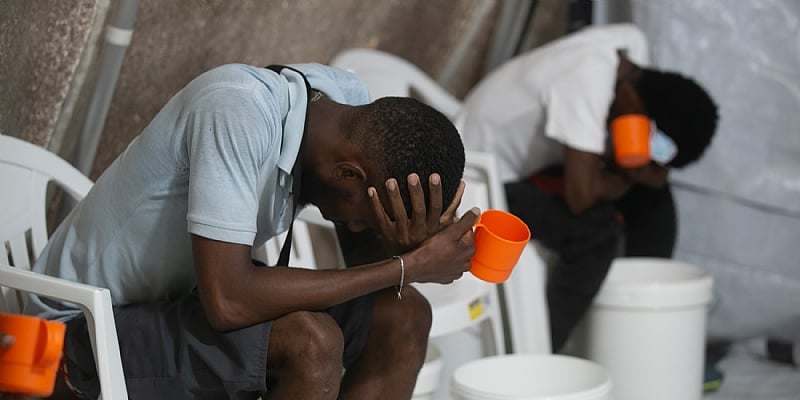The Ghana Health Service (GHS) is grappling with a significant cholera outbreak that has claimed 35 lives and affected over 4,155 individuals as of December 23, 2024. The outbreak, initially detected in October, has spread across five regions: Greater Accra, Central, Eastern, Western, and Ashanti. The Western Region bears the brunt of the outbreak, accounting for 17 of the reported deaths. Alarmingly, the GHS reports that a majority of the fatalities occurred within 24 hours of the individuals being admitted to healthcare facilities, highlighting the rapid progression and severity of the disease. This swift decline underscores the critical need for early detection, prompt treatment, and robust public health interventions to mitigate the impact of the outbreak.
The GHS has implemented a multi-pronged strategy to combat the cholera outbreak, focusing on vaccination campaigns, enhanced public health messaging, and strengthening healthcare system preparedness. Mass vaccination campaigns have been conducted in the hardest-hit districts, aiming to bolster immunity within the affected populations. Between November 30 and December 19, over 662,000 individuals received vaccinations in key areas such as Awutu Senya East, Sekondi-Takoradi, and Shama. These proactive measures have shown encouraging results, with a notable decline in reported cases following the vaccination drives. This suggests that targeted vaccination campaigns can play a crucial role in containing the spread of cholera and protecting vulnerable communities.
Early detection and treatment are paramount in managing cholera cases and minimizing fatalities. The GHS has intensified public awareness campaigns, urging individuals experiencing symptoms such as diarrhea and vomiting to seek immediate medical attention at the nearest health facility. Prompt medical intervention is essential to rehydrate patients and administer appropriate antibiotics, which can significantly improve the chances of survival. Delaying treatment can lead to severe dehydration and electrolyte imbalances, potentially resulting in rapid decline and death, as observed in many of the reported fatalities. Public education focusing on recognizing early symptoms and the importance of prompt medical care is therefore critical in mitigating the impact of the outbreak.
The Ministry of Health, working in conjunction with various stakeholders, has activated emergency response mechanisms to bolster the healthcare system’s capacity to handle the surge in cholera cases. This collaborative effort involves deploying emergency health teams to affected districts, reinforcing infection prevention and control measures within healthcare facilities, and conducting comprehensive environmental assessments to identify and address potential sources of contamination. These measures aim to provide timely and effective medical care to those infected while also preventing further spread of the disease. The environmental assessments are particularly crucial in identifying contributing factors such as contaminated water sources or inadequate sanitation practices, enabling targeted interventions to address these root causes.
The effectiveness of the implemented interventions hinges on active community engagement and adherence to preventive hygiene practices. The GHS continues to emphasize the importance of handwashing with soap and water, safe food handling, and consuming water from safe sources. These fundamental hygiene measures play a vital role in preventing the transmission of cholera and protecting individuals from infection. Community engagement is essential in disseminating accurate information about the disease, dispelling misconceptions, and promoting responsible behaviors that can limit the spread of the outbreak. Sustained public health messaging and community mobilization are crucial in ensuring the effectiveness of the ongoing interventions.
The current cholera outbreak in Ghana underscores the need for strengthened public health infrastructure, proactive surveillance systems, and sustained community engagement to prevent and control such outbreaks. While the ongoing response efforts have shown some positive results, continued vigilance and proactive measures are essential to fully contain the outbreak and protect vulnerable populations. Long-term strategies should focus on improving sanitation infrastructure, ensuring access to safe water sources, and enhancing community health education to prevent future outbreaks and build a more resilient health system capable of responding effectively to emerging public health threats. This multi-faceted approach is essential in safeguarding public health and reducing the burden of cholera in Ghana.


